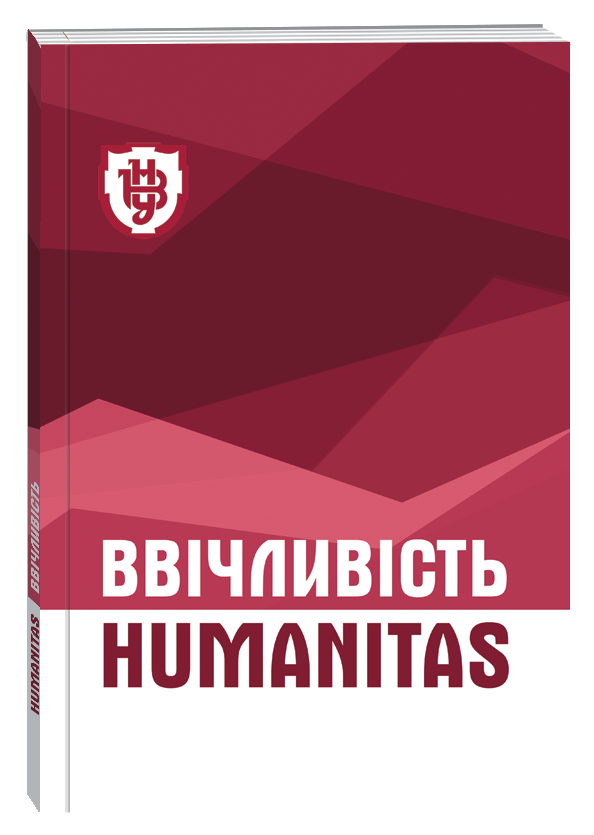“GLOBAL STANDARDS FOR SOCIAL WORK EDUCATION AND TRAINING”: ANALYSIS AND IMPLICATIONS FOR THE JUSTIFICATION OF AN AUTHORʼS INTEGRATED MODEL
DOI:
https://doi.org/10.32782/humanitas/2025.3.14Keywords:
social work, global standards, participatory education, professional training, facilitation, stakeholders, competence, student, educator, integrated modelAbstract
The article presents a critical analysis of the updated Global Standards for Social Work Education and Training (2020) as a methodological framework for modernizing the Ukrainian system of social work education. Against the backdrop of the social transformations caused by the full-scale war in Ukraine, the study substantiates the need for a conceptual revision of educational models in social work, taking into account international standards. The relevance of the study is driven by both the growing societal demand for professionals capable of acting in crisis conditions and a global shift in understanding the role of the social worker as a facilitator of change, mediator, and agent of inclusion.The author proposes an integrated participatory model that synthesizes three key components: competence as an integral educational outcome, participation as a methodology of the learning process, and subjectivity of the future social worker as an agent of social recovery. The model focuses not only on learning outcomes but also on the content, methods, and logic of interaction among all stakeholders–students, educators, employers, and community representatives.It is emphasized that under wartime and post-war conditions, this model ensures the relevance of training for real-world challenges.A step-by-step analysis of the Global Standards reveals substantive alignment between its provisions and the structure of the proposed model. Particular attention is paid to such elements of the standard as the value base of education, the educator’s role, student subjectivity, employer involvement, academic integrity, research culture, and contextual adaptation. The study demonstrates that the participatory principle in social work education transcends instrumental technique and should be regarded as an ethical and epistemological foundation of professional training.The practical significance of this study lies in establishing a conceptual foundation for improving curricula in line with global standards and local needs. The article outlines prospects for developing partnership-based platforms for community and employer involvement in educational design. Further research should aim at empirically validating the effectiveness of the model's implementation in the educational process.
References
Про вищу освіту: закон України. URL: https://zakon.rada.gov.ua/laws/main/1556-18
Global Standards for Social Work Education and Training. URL: https://www.ifsw.org/global-standards-for-social-work-education-and-training
International Association of Schools of Social Work. URL: https://www.iassw-aiets.org/about-iassw/brief-history/?utm_source
Семигіна Т. Роль професійних асоціацій у забезпеченні якості вищої освіти: кейс соціальної роботи. 2024. С. 197–202 URL: https://www.researchgate.net/publication/389063994_ROL_PROFESIJNIH_ASOCIACIJ_U_ZABEZPECENNI_AKOSTI_VISOI_OSVITI_KEJS_SOCIALNOI_ROBOTI
Семигіна Т. Аналіз освітніх програм із соціальної роботи в Україні: інституційний аспект. Social Work and Education. 2024. Vol. 11, 3, 481–492. DOI: 10.25128/2520-6230.24.4.3
Стадніченко С. В. Особливості правового регулювання працевлаштування молодих спеціалістів. Електронне наукове видання «Аналітично-порівняльне правознавство». 2022. 4. 168–174. DOI: https://doi.org/10.24144/278 8-6018.2022.04.30
Стратегія розвитку відокремленого структурного підрозділу «Економіко-правничий фаховий коледж Запорізького національного університету на 2023-2025 роки». 2023. URL: https://epkznu.com/wp-content/uploads//2024/09/%D0%A1%D1%82%D1%80%D0%B0%D1%82%D0%B5%D0%B3%D1%96%D1%8F-%D0%95%D0%9F%D0%A4%D0%9A-1.pdf








